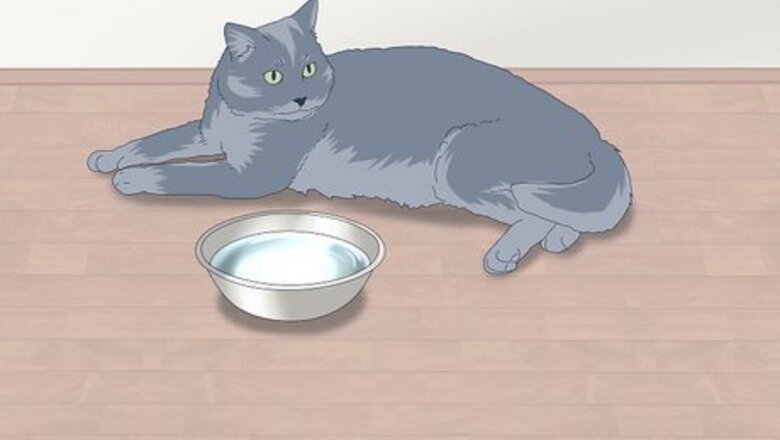
views
- Calm a panting cat by giving them a cool, quiet place to rest and removing any triggers that stress them out.
- Cats commonly pant because they’re hot, stressed out, or overexerted themselves playing.
- Call or make an appointment with your vet if your cat continues to pant and breathe rapidly. This might be a sign that they are sick.
Calming a Hot Cat

Move your cat to a cool spot and give them water. To cool your cat down, turn on your AC or get a standing fan running. Lay a cotton blanket in a cool, dark place and place a wide bowl of cold water nearby. Calm your cat by slightly dampening a towel and stroking under their chin, around their ears, their paws, and their belly. To prepare for hot days, place water bowls around your house and set a bed or cardboard box in a cool, quiet area that your cat can lay in. If your cat stays outdoors, make sure there are places in your yard that get shade. On really hot days, keep them inside. Let your cat rest on hot days—long, intense play can quickly overheat your cat.
Calming a Stressed Cat
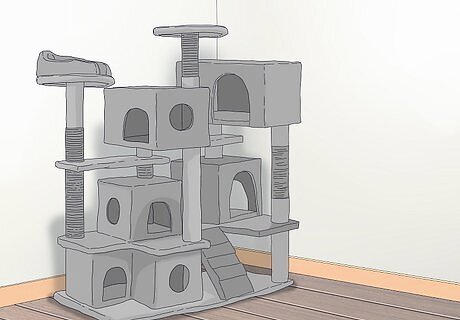
Remove your cat from the stressor as soon as possible. Loud noises and new visitors are common triggers for stress and anxiety in cats. To reduce your cat’s stress, quiet the noise and take your cat to an isolated, quiet space in your home. If your cat is stressed out by car rides, give them cool air, calming music, and safely secure them in a carrier they can see through. Make sure there are safe places around your home where your cat can escape to and calm themselves down, like a tall cat tower or pet home tucked away in a quiet corner. Synthetic pheromones that mimic the natural chemicals your cat releases from their face can also calm your cat down. Place a plug in pheromone difuser in a quiet room or near your cat’s favorite hiding place. If you’re on the go, use a pheromone spray on your cat carrier to soothe their anxiety.
Calming a Tired Cat
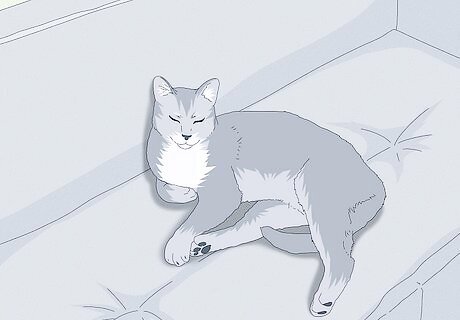
Stop playing with your cat and encourage them to rest. If you notice your cat panting after playing with a teaser toy or chasing a catnip mouse, take it away from them. Speak to your cat calmly and take them to a cool, quiet place where they can rest. To help calm them down even more, spritz a pheromone spray on their bed or around the room.
Reasons Cats Pant
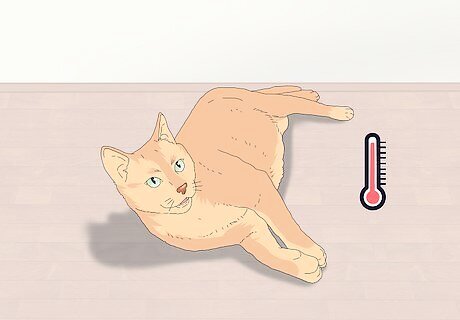
They’re hot. Heat is a common reason why cats pant, which usually happens when they can’t find any other ways to cool down. Your cat might pant if the room is hot and there are no shady spots for them to lie in, or if they aren’t receiving enough ventilation when taking a trip in the car. Cats mostly regulate their temperature through their paw pads, where they release sweat to cool their feet off. If they can’t find a shady, cool location, they’ll start panting to help relieve the heat.
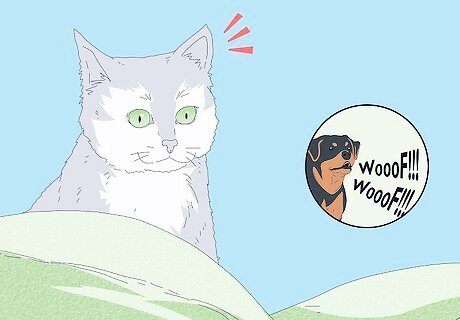
They’re stressed out. Look for any triggers or stressors that can work your cat up. Maybe you’re taking a trip to the vet and you know your cat gets anxious about car rides. Or, a friend brought their new puppy over and your cat can’t escape its loud and overwhelming presence.

They overexerted themselves. Consider what your cat was doing right before they started panting. Maybe you were playing an intense game of chase the laser pointer, or your cat got a case of the zoomies.
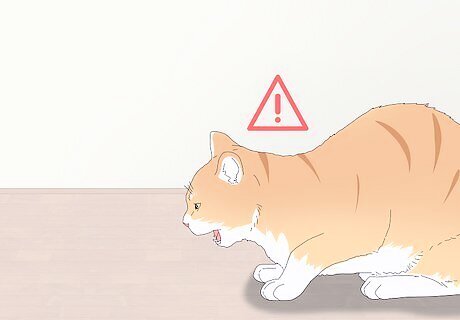
They’re sick. If your cat is panting and you can't identify any obvious heat or stress triggers, there might be an underlying disease or condition causing their panting. Watch for other behavior cues to see if your cat is sick, such as lethargy, coughing, and difficulty breathing.
When to Seek Help
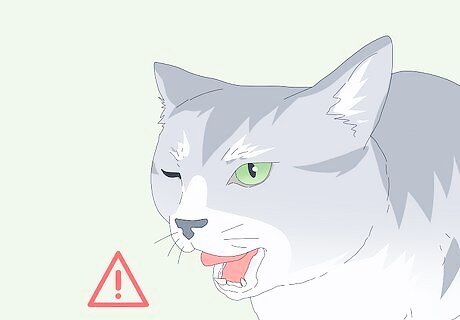
Panting for long periods of time If your cat continues to pant after calming down, they might be sick. Panting from heat, stress, or overexertion usually stops after several minutes once your cat is calm and relaxed. However, extended, unprompted panting warrants a visit to the vet.
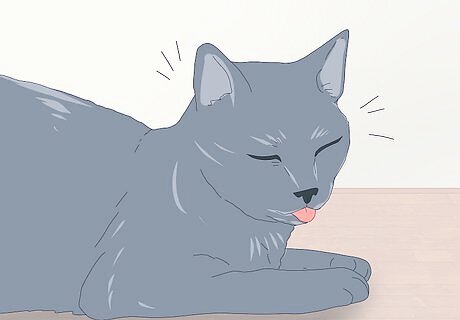
Wheezing and coughing Panting and difficulty breathing can be a sign your cat has asthma. If you notice your cat breathing quickly and wheezing, make an appointment with your vet.
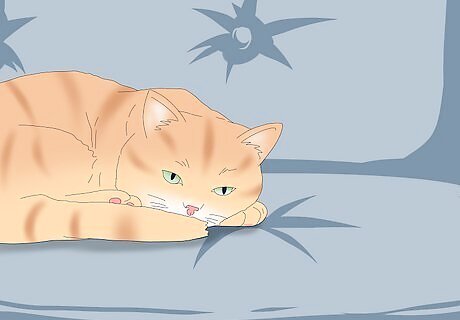
Lethargy Viruses and bacteria can enter your cat’s nasal passages and lungs, causing a respiratory infection. If your cat is less active and playful and continues to pant and cough, make a visit to your vet as soon as possible.

Lack of appetite This can be a sign of heart disease. Make an appointment with your vet immediately if you notice your cat refusing to eat, being less active, and experiencing labored breathing. If not caught quickly, heart disease can lead to congestive heart failure.
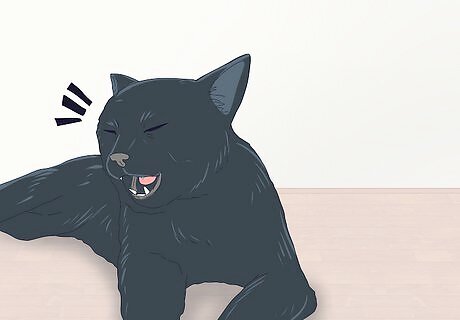
Difficulty breathing Panting and labored breathing can mean your cat has heartworm disease. Unfortunately, there is no current cure for this disease. However, your vet can give you tips and treatments to lessen inflammation and your cat’s symptoms. It’s a good idea to talk to your vet about giving your cat monthly heartworm medication to prevent the disease from infecting them.
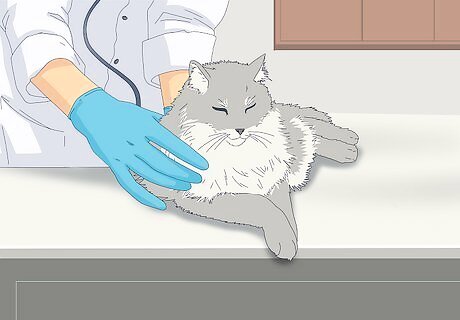
Blue gums and rapid breathing Call your vet immediately if you notice these symptoms. This is usually a sign that your cat isn’t getting enough oxygen.




















Comments
0 comment